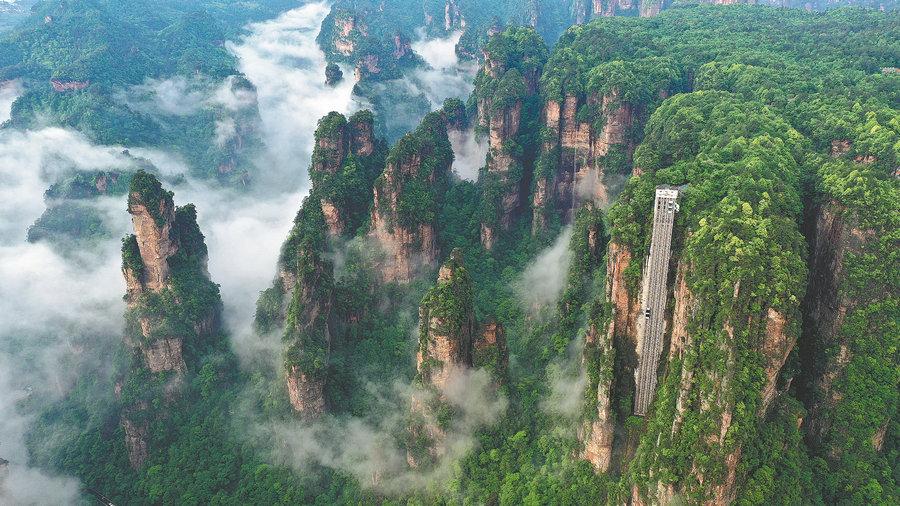Ranger lets nature work


Having committed himself to the same territory since 1994, 55-year-old Peng Shiwen has become very familiar with the terrain he safeguards.
As a ranger of the State-owned Zhangjiajie forest farm in Hunan province, his daily routine includes patrolling the secluded wood-covered mountains and staying vigilant for signs of fire.
"After all these years, I've grown accustomed to my simple life in the forest farm and formed a deep emotional connection with it. I consider the forest ranger station as my home and green mountains and woods as my companions," he says.
Peng recalls that in the past, he had to communicate with other rangers with a walkie-talkie or face-to-face, but nowadays, thanks to new technology, they're able to use smartphones and update their patrol trails and work logs in an app.
"Our working conditions are much better, with tools such as drones that patrol specific areas regularly and plan routes. We do manual patrol every day and focus on forest fire prevention and safeguarding against pine wilt disease," he says.
The forest farm is part of the Wulingyuan Scenic and Historic Interest Area, which was inscribed as a UNESCO World Natural Heritage Site in 1992. It meets the criteria for the assessment of outstanding universal value — "containing superlative natural phenomena or areas of exceptional natural beauty and aesthetic importance".
A spectacular area stretching over 26,000 hectares, the site is dominated by more than 3,000 narrow sandstone pillars and peaks, many over 200 meters high.
In addition to the striking beauty of the landscape, the region is also noted for the fact that it is home to a number of endangered plant and animal species.
Li Wei, an official from the administrative bureau of Wulingyuan Scenic and Historic Interest Area, says they're using a forest-fire early warning system, with high-altitude thermal imaging cameras to identify smoke or fire and a 24/7 control center to quickly respond to any emergencies.
To protect against pine wilt disease, they regularly clear dead pine trees to eliminate the threat of the epidemic.
"Each forest ranger is in charge of patrols of a specific region. The tradition of forest protection has been passed down through the generations. Our careful protection has achieved positive results, with good quality water and air, and conservation of wild flora and fauna," Li says.


















